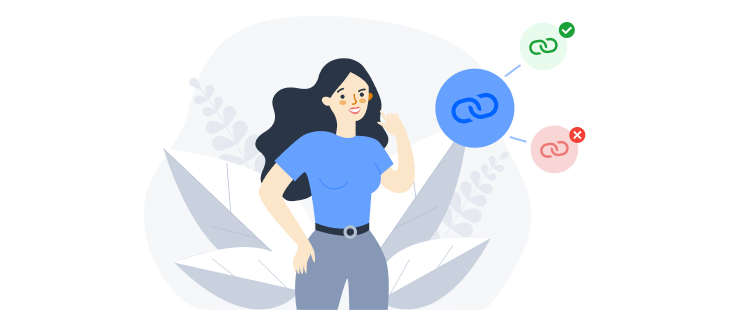What Are Backlinks and Why Is Link Building Important for Your Website?
20 Dec, 2021

If you are working on SEO, you probably already know that keywords alone are not enough to make your website rank well. While keywords are a foundation, they are only part of the picture. A strong SEO strategy also needs to focus on link building and backlinks – one of the most important off-page factors for success.
What is link building?
Link building is the practice of creating hyperlinks from one website to another with the goal of improving search engine visibility. A hyperlink, or simply a link, allows users and search engines to navigate between pages.
Backlinks are the most valuable type of external link. They occur when another website owner links to your content. You earn them by building relationships and creating content, products, or services that others find worth referencing.
Why Is Link Building So Important?

Links remain one of the strongest signals for search engines. A solid backlink profile offers many benefits:
- Credibility and authority: Links act like third-party endorsements. They raise your domain authority and make your website more trustworthy.
- More traffic: Backlinks bring visitors from external sites, not just search engines.
- Industry connections: By collaborating with sites in your niche, you build stronger relationships that may open up new opportunities.
- Visibility and brand awareness: Backlinks help you rank higher and increase brand recognition in new markets.
- Lower bounce rates: Internal links improve navigation, helping users (and search engines) explore your site longer.
- Natural growth: Strong backlinks often lead to more backlinks, as others discover and reference your site.
- Brand building: Being cited by authority sites in your industry establishes you as a leader.
How to Get Backlinks

Backlinks rarely appear by chance. To attract the right ones, you need to invest effort and strategy. Here’s a proven process:
- Identify relevant websites in your industry.
- Analyze your competitors’ backlinks for inspiration.
- Create content that is worth linking to.
- Reach out to bloggers, journalists, and influencers.
- Monitor results and adjust your outreach strategy.
The more useful and unique your content, the easier it becomes to attract quality backlinks.
Good vs. Bad Backlinks

Not all backlinks are created equal. Some can harm your SEO instead of helping it.
Good Backlinks:
- Links from authoritative and relevant websites.
- Links from sites with high domain authority and strong traffic.
- Natural, editorial links that are not purchased.
- Backlinks with keyword-rich anchor text.
Bad Backlinks:
- Links from irrelevant or spammy sites.
- Backlinks from penalized or untrustworthy domains.
- Purchased or artificial links.
- Links from link farms or profile pages created only for SEO.
- Broken or manipulative links.
The Role of AI and Modern Tools in Link Building
Technology – including artificial intelligence – has changed how link building is done. It brings both opportunities and risks.
Opportunities:
- Smarter outreach: AI can help personalize and scale outreach emails.
- Content ideas: Tools generate insights into what content attracts links.
- Competitor analysis: Backlink checkers highlight gaps compared to competitors.
Risks:
- Content overload: Low-quality AI content adds no value for backlinks.
- Generic outreach: Automated, impersonal messages damage credibility.
- Spammy practices: Low-quality backlinks will be ignored or penalized by search engines.
The takeaway: tools and AI can support your efforts, but relationships, quality, and relevance remain the true backbone of link building.
Need Some Help?
Tools like rankingCoach 360 let you analyze your competitors’ backlinks and discover opportunities to build your own. By putting link building at the core of your SEO strategy, you can increase authority, traffic, and brand recognition.
